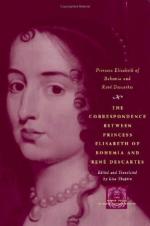|
This section contains 2,003 words (approx. 7 pages at 300 words per page) |

|
Differential Knowledge
Summary: This paper offers a refute to Descartes dream argument, by providing reasons for when we are able to differentiate between a dreaming state and an awake state, and therefore we are able to attain knowledge with certainty while awake.
If one is not able to differentiate between his dreaming state and his conscious state, then I agree with Descartes' claim that he cannot attain knowledge that derives from his senses. Because experiences in vivid dreams are no more than one's imagination at work, it would be wrong to consider them as more than false beliefs. And, as it is the case that false beliefs are not sufficient grounds of knowledge, Descartes intends to show that true beliefs are doubtable in which equivocates them to false beliefs, and therefore any doubtable belief is not pertinent, vis-à-vis., knowledge. In short, without being able to doubt or deny beliefs that derive from the senses, Descartes' argument does not stand. And here is where I intent to knock it down. I argue that due to one's physiological responses he is able to differentiate between a dreaming state and a conscious...
|
This section contains 2,003 words (approx. 7 pages at 300 words per page) |

|


